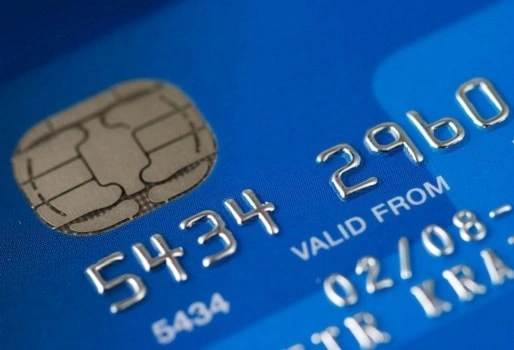How to Negotiate a Credit Card Debt Settlement: A Comprehensive Guide

rebuild your worth, book a free consultation todayBook Now
By Taz Rajan, Bromwich+Smith Staff | 910 words | Reading Time: 4 minutes | Late update: 2023/06/09
Life is a journey filled with ups and downs, and one of the pitfalls can be the challenge to pay back owed debt. The path to financial security isn't always a straight line, and that's okay. Rather than avoiding these challenges, lets face them head on, with the knowledge and empowerment to do so. We want to explore the art of negotiating a credit card debt settlement—a journey that can offer invaluable insights and strategies to help you regain control of your financial well-being.
The Reality
Reality is that life is full of unexpected events—job loss, health issues, or property damage—that can dramatically impact your financial stability. When these events occur, your ability to pay your credit card bills on time might become challenging. The critical first step in managing credit card debt is acknowledging these unforeseen circumstances and taking proactive steps to communicate with your creditors. Instead of avoiding the issue, reach out to your credit card companies as soon as you realize you might miss a payment. Timely communication can significantly affect how willing creditors are to work with you.
Timing and Communication
When it comes to credit card debt negotiation, timing is everything. Credit card companies are more likely to work with you if you initiate contact before falling significantly behind on payments. By handling your creditors early, you open up opportunities for negotiation and demonstrate your commitment to resolving the situation. This may include discussing temporary payment reductions, revised interest rates, or other alternatives that suit your financial situation. Be forthcoming with what is realistic, offer payment plans you can stick to.
Relationships and Credit Scores
Avoiding communication with credit card companies can lead to extreme consequences. Late payments, mounting interest, and penalties can spiral out of control, ultimately damaging your credit score. A lower credit score can impact various aspects of your life, including your ability to secure loans or even rent an apartment. By being honest and proactive you will help secure your creditworthiness.
Strategies for Negotiating Credit Card Debt Settlements
1. Direct Contact with Lenders
Before you reach out to your creditors, be mindful of how you want to come across. Like in any communication your tone, approach, and honesty matter. Maintain a genuine and respectful tone, clearly explaining your situation. Emphasize your commitment to resolving the debt and inquire about potential alternatives. Remember, creditors are more likely to cooperate with individuals who take responsibility for their circumstances and speak to them in a respectful tone.
2. Budget
Think of your finances as a living document and be willing to rework your budget on an ongoing basis- nothing is set in stone! Rework your budget to allocate funds specifically for debt payments. Explore ways to trim unnecessary expenses, like dining out or subscription services. Additionally, consider opportunities to increase your income, such as taking on a part-time job or find a way to make a hobby generate income. Every dollar saved or earned can contribute to your debt settlement strategy.
3. Seeking Professional Help
Recognize when individual debt settlement becomes unattainable. If your credit card debt is overwhelming, seeking assistance from a Licensed Insolvency Trustee is a responsible step. LITs are experts in debt management and can guide you through formal restructuring options like Consumer Proposals and Bankruptcies.
Understanding Consumer Proposals and Bankruptcies
Consumer Proposals
Consumer Proposals are legally binding agreements between you and your creditors. They involve repaying a percentage of your debt over an extended period, often without interest. This option provides relief from unmanageable debt while allowing you to retain your assets and consolidate payments.
Bankruptcy
Bankruptcy should be considered a last resort for complete debt relief. It involves selling non-exempt assets to repay creditors and obtaining legal protection from them. While it offers a fresh start, bankruptcy also comes with its own list of pros and cons and it is important to understand the program, with support from an LIT.
Reaching Out
If the complexity of debt settlement overwhelms you, remember that seeking help is a sign of responsibility, not failure. Licensed Insolvency Trustees specialize in guiding individuals through these challenging processes. They are the only regulated provider who can help you with debt relief programs like a Consumer Proposal and Bankruptcy. An LIT will assess your situation, explain your options, and provide custom recommendations based on your circumstances.
When it comes to negotiating credit card debt on your own, open communication is your greatest asset. By addressing unforeseen circumstances head-on and seeking assistance when necessary, you can take a significant step toward regaining control of your financial future.
Bromwich+Smith Licensed Insolvency Trustees are here to support you on your journey to financial freedom. Reach out today for a free, confidential, no obligation consultation. Call us at 1-855-884-9243, or request a call back at contact us page. We want to see you flourish!
By Taz Rajan Community Engagement Partner at Bromwich+Smith
Taz has been in the finance industry for nearly 2 decades and has always been passionate about education and empowerment. Having declared bankruptcy herself, she intimately understands the shame, stigma surrounding matters of debt as well as the joy and relief that comes from restructuring. Taz actively works to normalize the conversation of debt through blogs, media interviews, webinars, lunch & learns and through building relationship.